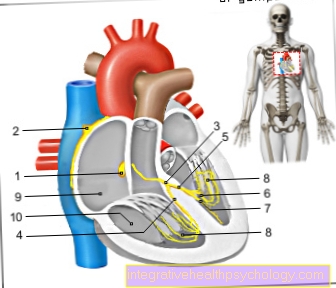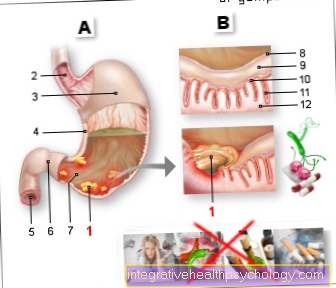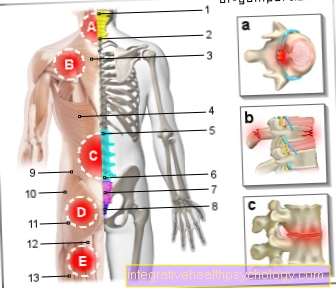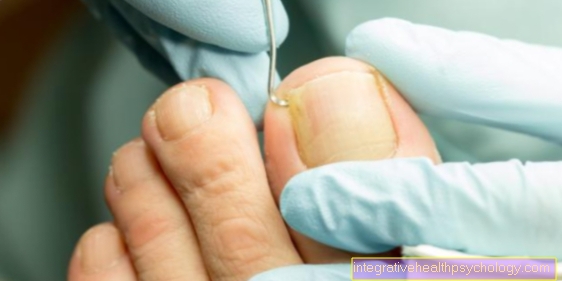Health care
Definition- what is health care?
Health care is the term used to describe measures that are intended to maintain and improve the health of the individual and prevent the development of possible diseases.
Specifically, preventive health care includes, for example, preventive examinations for the early detection of diseases or offers to improve physical performance (sport). In Germany, health care is firmly integrated into the social system and is supported by health insurance companies and many employers.

Why should one pursue health care?
Health care is a big topic, it affects everyone, but not everyone uses health care to the extent offered. Especially when nothing hurts them and they have no other complaints, many people wonder why they should go to preventive care at all.
The fear of bad news also prevents many from going to the medical check-up. However, many diseases can be recognized at an early stage, which is particularly important if the disease initially progresses insidiously and without any symptoms, so that some of those affected do not notice anything at all.
Some examples of this are high blood pressure or increased blood lipid levels. Health care also has the decisive advantage that people can actively take care of their own health. The situation is different with existing diseases, where those affected have to rely on the judgment and decisions of the doctors.
Preventive health care gives people the chance to maintain and improve their health as much as possible from the outset and to take measures themselves so that nothing changes in their health. Since costs are a big issue for many, it is important to know that numerous health care examinations are regularly covered or subsidized by health insurance companies.
You may also be interested in this topic: Health coaching - support for you!
What does preventive health care include - What preventive examinations are there?
All those who are members of a statutory health insurance fund are generally entitled to preventive health care. This includes numerous preventive examinations, most of which are covered by health insurances and are used for the early detection of diseases and prevention. The recommended check-ups include:
-
Pregnancy checkups that take place regularly during pregnancy
-
Check-ups for children and adolescents U1-J1
-
Examinations for the early detection of cervical cancer and breast cancer screening (for men for the early detection of prostate diseases), as well as cancer of the external genital area
-
Check-Up 35 for the early detection of cardiovascular and kidney diseases and diabetes
-
Investigations for the early detection of skin cancer and colon cancer
-
various vaccinations
-
dental check-ups
-
in men, an ultrasound scan of the abdominal artery
The age at which the various examinations are advisable and which are covered by the health insurance company is stipulated by law and also depends on the medical history and family background of the individual patient.
You might also be interested in this topic: Check-up examinations
Health care for men
In addition to the gender-unspecific medical check-ups, there are some services that are specifically designed to provide preventive health care for men. The best known of these preventive examinations is probably the early detection of cancer of the prostate or the external genitals of men. This examination is recommended annually from the age of 45 and paid for by the health insurance companies.
The scope of services includes the analysis of the medical history, a visual examination with palpation of the external genital organs and the rectum as well as the examination of the local lymph nodes and finally the discussion of the examination results. In terms of health care for men, there is another special feature compared to women, namely the ultrasound examination of the abdominal artery from the age of 65. It is used for the early detection of abdominal aortic aneurysms, which pose a significantly higher risk in men than in women. The examination naturally also includes informing the patient and discussing the results.
Read more on the topic: Prostate cancer screening
Health care for women
In addition to the gender-unspecific medical check-ups, there are a number of services that are specifically designed to provide preventive healthcare for women. From the age of 20, this includes advice on the early detection of cervical cancer, then an examination of the genital organs is carried out every year and a tissue swab taken from the cervix and cervix, which is then examined in the laboratory.
In addition, from the age of 30, a breast examination is carried out every 2 years for the early detection of breast cancer. From the age of 50, women should regularly take advantage of the mammography screening (a breast x-ray) for the early detection of breast cancer. The examination includes a detailed informative discussion, the actual mammography and the discussion of the results.
Of course, for women, health care also includes examinations in connection with pregnancy. With prenatal care, the examinations are initially carried out monthly and from the 32nd week of pregnancy every 14 days. The examinations are, among other things, ultrasound examinations, urine analyzes or the measurement of blood sugar levels. Prenatal examinations for the early detection of genetic diseases are not part of the scope of services.
Further information on the topic can be found here:
- Breast cancer screening
- Prenatal care
At what age should I start health care?
Preventive health care begins, as indicated in the previous sections, before the birth.
In order to maintain and improve health in the long term, it is of course advisable to start appropriate preventive health care as early as possible and to take advantage of the services of the health insurance companies. In particular, if you know of previous family illnesses or there is an increased risk for other reasons, you should follow the age recommendations for the various preventive measures and go to regular check-ups.
What does the health insurance company pay?
The health insurance company pays far more costs for health care than most probably assume. The following early diagnosis and preventive examinations are part of the range of services offered by German health insurance companies:
- One-time consultation and annual check-ups for women aged 20 and over for the early detection of cervical cancer
- From the age of 30, the annual check-up for the early detection of breast cancer
- the check-up 35, which is used every 2 years from the age of 35 for the early detection of cardiovascular diseases, diabetes and kidney diseases
- From the age of 35 a check-up every 2 years for the early detection of skin cancer
- an annual examination for the early detection of prostate cancer in men aged 45 and over
- From the age of 50, the health insurance pays an annual test for the early detection of colon cancer and, for women, a mammogram every 2 years
- From the age of 55 a colonoscopy (colonoscopy) is paid for
- a single ultrasound scan of the abdominal artery for men aged 65 and over
- In addition to these services, the health insurance company also pays for many vaccinations, prenatal check-ups, examinations for children and adolescents (U1 to J1), dental check-ups and, in some cases, health courses are offered that are covered in full or largely subsidized.
The benefits can and should not be used by the policyholder.
What is a health care proxy?
A power of attorney generally comes into play if you are unable to make a decision yourself due to illness or other reasons. This is also the case with the health care proxy, which includes all health and medical issues.
In summary, this means that you specify in writing who is allowed to make important decisions on your behalf in an emergency and who is allowed to receive information about financial and health issues. With the health care proxy, for example, for the person you have chosen (authorized representative), doctors are released from their confidentiality obligation, decisions about treatment options and, if necessary, operations are made or legal and financial matters are clarified.
- The health care proxy - everything about the topic!
- Care law
Is health care tax deductible?
Health care measures are tax deductible up to a certain amount under certain conditions.
The services provided must comply with Section 20 and Section 20a of the Social Security Code V (including coping with stress, relaxation, restricting the consumption of addictive substances, promoting physical activity and reducing the strain on the musculoskeletal system). If the conditions for this are met, expenses of up to € 500 per year that are used for health care are tax-free.





























